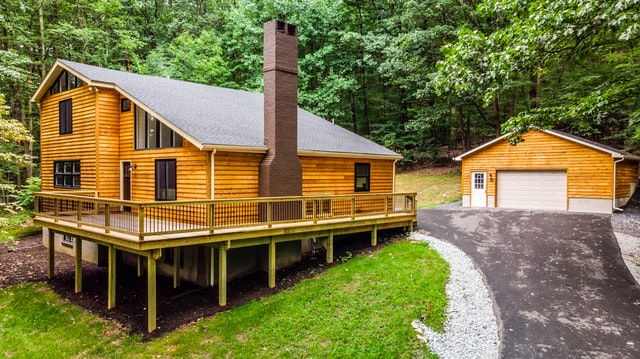Real estate is assessed as mixed residential and commercial, industrial and residential, or rural and residential. Getting a loan for a mixed use property will depend on how the lender defines your property. Can you get a residential mortgage on a commercial property?
What is commercial property?
In general, commercial real estate is real estate that is divided into zones and / or used for commercial purposes; that is, real estate in which business is conducted. Commercial real estate includes shops, shopping centers, warehouses, factories, office buildings and any other property used to generate income.
Residential buildings can be considered as commercial real estate, even if the space is used for living. Typically, a residential building with five or more units is considered “multi-family” and is a commercial property for financing.
How do banks view mixed commercial and residential properties?
Residences are attached to many older commercial buildings. The most common example is the shop front on the main road, which also has an apartment on the first floor for the owners. The problem is that this type of property is often occupied by owners. Banks prefer to rent commercial real estate because if the tenant gets into financial trouble, the landlord can usually afford a loan or vice versa. In addition, many business owners do not want to live in their workplace, so these properties may not be very sought after when selling or leasing.

What do I have to do to qualify for a mortgage?
Commercial lenders usually prefer that borrowers have experience in investing in real estate, because servicing this type of property requires a higher level of understanding. Each case is different, and many applications will depend on the strength of the creditor’s application.
However, there are a few things you can do to put yourself in the best position.
Like home loans, the larger your deposit, the better the lender will be. A 20-30% deposit is usually sufficient for a semi-commercial loan.
If you already own a home or have several rental properties that you have had for about two years, the lenders will also consider it positive and that you have experience in dealing with non-residential real estate.
If you are going to your first commercial investment, you will have access to more options if you want to buy a standard store or a store with an apartment above.
The more complex commercial real estate, the more your choice will be limited.
Commercial mortgage collateral
Lenders are more aggressive in securing their interests when providing commercial loans. If the borrower is a business entity, the lender will most likely require one or more business owners to personally guarantee the loan – that is, signing a document stating that if the company fails to pay, the owner will be personally liable.
The lender may also require additional collateral if corporate finances are not strong enough, such as an additional home loan for the owner’s personal residence or pledge on personal property such as equipment and supplies.









